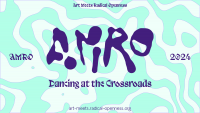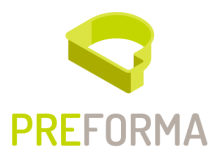 We live in a digital age we no longer commit knowledge to vellum or paper, storage solutions that have stood the test of time. Now everything is created, consumed and, hopefully, stored on computers. It is this last area that is of particular concern, how can we ensure that valuable digital information will remain accessible and usable? This is where digital preservation comes in.
We live in a digital age we no longer commit knowledge to vellum or paper, storage solutions that have stood the test of time. Now everything is created, consumed and, hopefully, stored on computers. It is this last area that is of particular concern, how can we ensure that valuable digital information will remain accessible and usable? This is where digital preservation comes in.
EGI: What is the goal of the Networking Session?
Claudio Prandoni: Our aim with the session is to present to the whole digital preservation and e-infrastructures community the new opportunities offered by the pre-commercial-procurement launched by PREFORMA project. We are interested in engaging with everyone from the open source community and developers to standardisation bodies and memory institutions. At the end of May we launch a call for tender to develop and deploy a suite of open source tools that allow memory institutions to check that the files stored in their archives conform to a specific standard.
EGI: Who would you like to attend the session?
CP: The tender is quite broad and we want to have a wide range of stakeholders involved. So at the session we would love to see any potential supplier like SMEs, research centres or universities that have some experience in the field of standardisation and quality checks. However they are not the only people who should come along, we are interested in memory institutions and cultural heritage organisations coordinating or representing them, developers, research organisations, standardisation bodies, funding agencies, best practice networks and other projects in the digital culture, e-Infrastructures and policy arenas. There is a place for anyone interested in preserving our digital heritage.
EGI: What will attendees learn from attending?
CP: We hope attendees will have a better understanding of what PREFORMA does and how they can get involved, including funding opportunities. But most importantly for us is the opportunity for them to give us feedback and advice and ask specific questions around the issues and challenges that PREFORMA is addressing, helping us to improve and refine the requirements and the specification of the tender
The “Pre-commercial procurement on digital preservation” networking session will be held at 11am on Wednesday 21st at the EGI Community Forum in Helsinki.
You can find more information on the PREFORMA website at http://www.digitalmeetsculture.net/article/preforma-egi-community-forum-2014
Source: http://www.egi.eu/news-and-media/newsfeed/news_2014_014.html


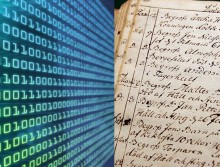
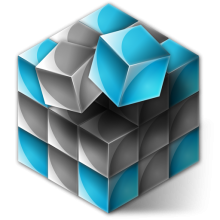

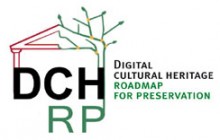 The idea that is currently under discussion is to merge and integrate the work that has been done to set up the
The idea that is currently under discussion is to merge and integrate the work that has been done to set up the 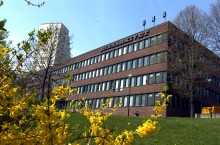
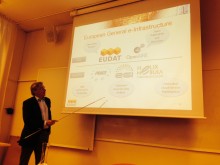
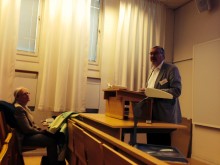
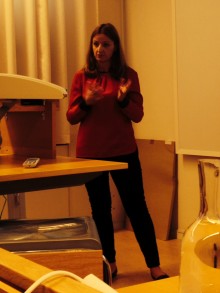
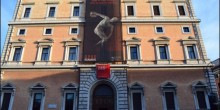
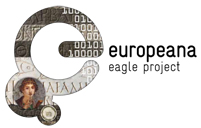 This event, event organised by EAGLE, Europeana network of Ancient Greek and Latin Epigraphy e Wikimedia Italia with the support of Soprintendenza Speciale per i Beni Archeologici di Roma, aims to serve as a platform for sharing knowledge and good practices while stimulating reflections on the role of digital technologies in the preservation and promotion of cultural digital heritage.
This event, event organised by EAGLE, Europeana network of Ancient Greek and Latin Epigraphy e Wikimedia Italia with the support of Soprintendenza Speciale per i Beni Archeologici di Roma, aims to serve as a platform for sharing knowledge and good practices while stimulating reflections on the role of digital technologies in the preservation and promotion of cultural digital heritage.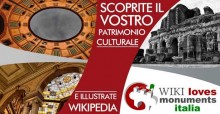
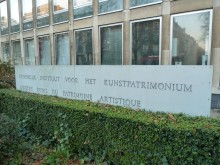
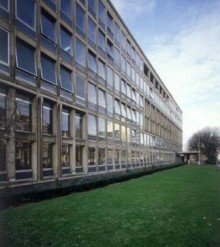 On April 4th, 2014,
On April 4th, 2014, 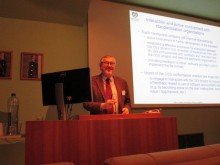 After a welcome message from Erik Buelinckx (KIK-IRPA), the project Coordinator Börje Justrell (Riksarkivet) introduced the context and the objectives of the PREFORMA project and of the pre-commercial procurement. Then, Bert Lemmens (Packed) presented the challenge brief, giving an overview of the requirements and specifications of the tender. Antonella Fresa (Promoter), the PREFORMA Technical Coordinator, followed illustrating how to get information about the tender, how to participate to the call and which are the different phases of the procurement, from the publication of the call until the evaltuation of the proposals. After a short break, the last three presentations covered how the design phase will be organised (Peter Pharow, Fraunhofer), the mechanisms which will regulate the evaluation of the prototypes (Nicola Ferro, University of Padua) and the open source approach which stands at the basis of the PREFORMA project (Bjorn Lundell, University of Skövde).
After a welcome message from Erik Buelinckx (KIK-IRPA), the project Coordinator Börje Justrell (Riksarkivet) introduced the context and the objectives of the PREFORMA project and of the pre-commercial procurement. Then, Bert Lemmens (Packed) presented the challenge brief, giving an overview of the requirements and specifications of the tender. Antonella Fresa (Promoter), the PREFORMA Technical Coordinator, followed illustrating how to get information about the tender, how to participate to the call and which are the different phases of the procurement, from the publication of the call until the evaltuation of the proposals. After a short break, the last three presentations covered how the design phase will be organised (Peter Pharow, Fraunhofer), the mechanisms which will regulate the evaluation of the prototypes (Nicola Ferro, University of Padua) and the open source approach which stands at the basis of the PREFORMA project (Bjorn Lundell, University of Skövde).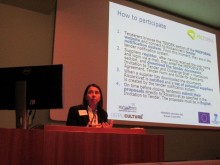 The Q&A session which followed involved many of the attendees around a number of key topics, among which: the usage scenarios to be addressed by the suppliers; the data sets which will be made available by the memory institutions participatng to PREFORMA and those that have to be provided by the tenderers; ideas on sustainability and business models; the conformancy check of the metadata associated to the digital objects; the reporting and feedback process, including the relationship with the standardisation bodies; the possibility to include in the tender other formats or processes.
The Q&A session which followed involved many of the attendees around a number of key topics, among which: the usage scenarios to be addressed by the suppliers; the data sets which will be made available by the memory institutions participatng to PREFORMA and those that have to be provided by the tenderers; ideas on sustainability and business models; the conformancy check of the metadata associated to the digital objects; the reporting and feedback process, including the relationship with the standardisation bodies; the possibility to include in the tender other formats or processes.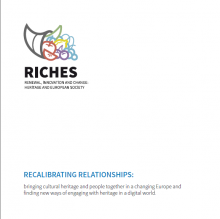
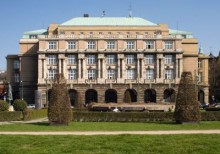
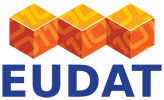 The User Forum will also be a platform to look at Horizon 2020 opportunities, in terms of outlining EUDAT’s plans for research data management planning support for projects, how collaboration with existing and new users will evolve as well as interacting with attendees on their expectations and requirements for services and support from EUDAT under Horizon2020.
The User Forum will also be a platform to look at Horizon 2020 opportunities, in terms of outlining EUDAT’s plans for research data management planning support for projects, how collaboration with existing and new users will evolve as well as interacting with attendees on their expectations and requirements for services and support from EUDAT under Horizon2020.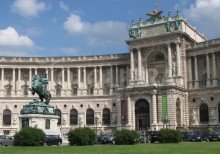

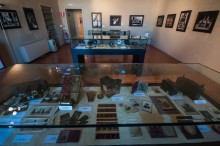
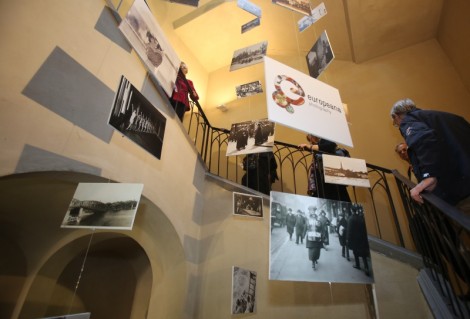
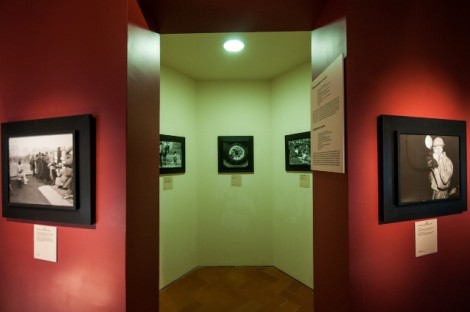
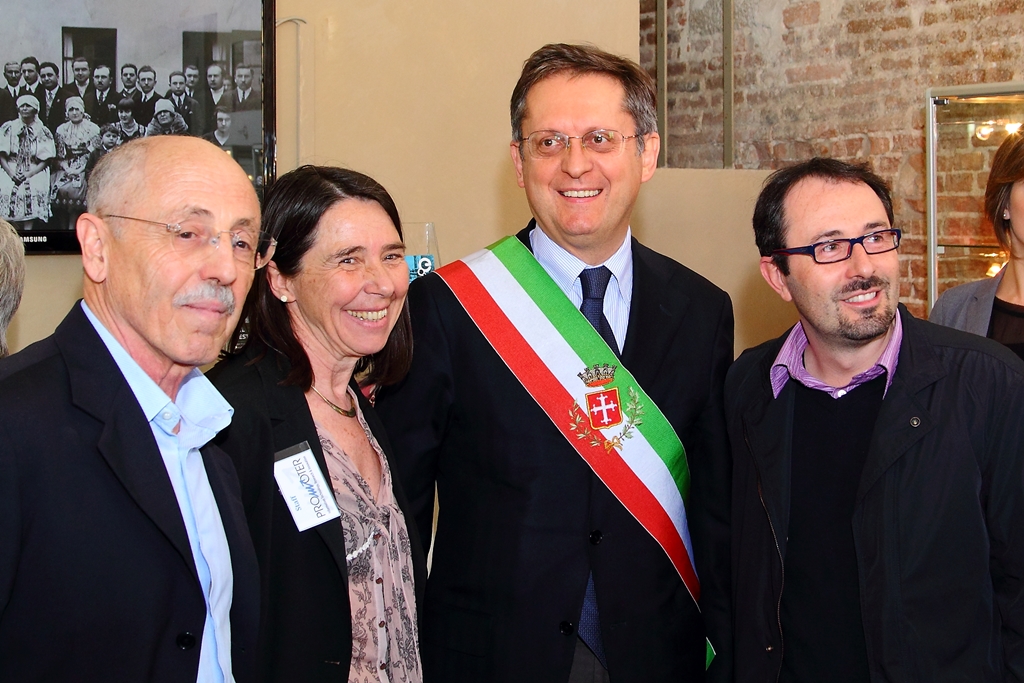
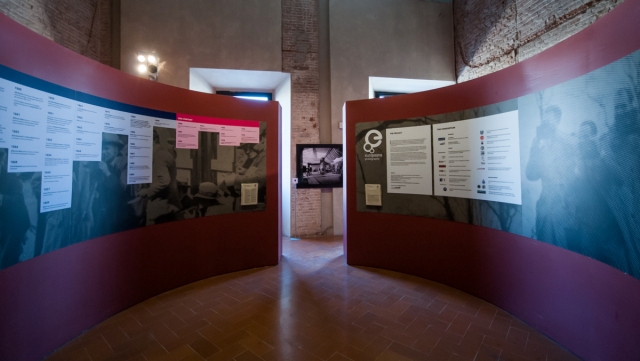

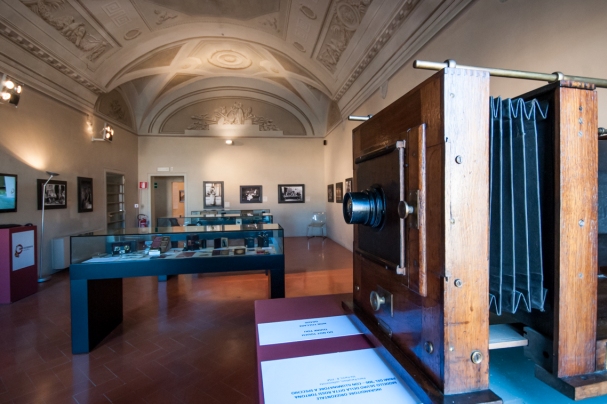
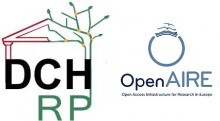
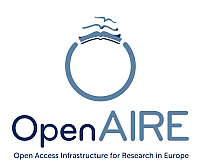 OPENAIRE
OPENAIRE  If you have interesting news and events to point out in the field of digital cultural heritage, we are waiting for your contribution.
If you have interesting news and events to point out in the field of digital cultural heritage, we are waiting for your contribution.














